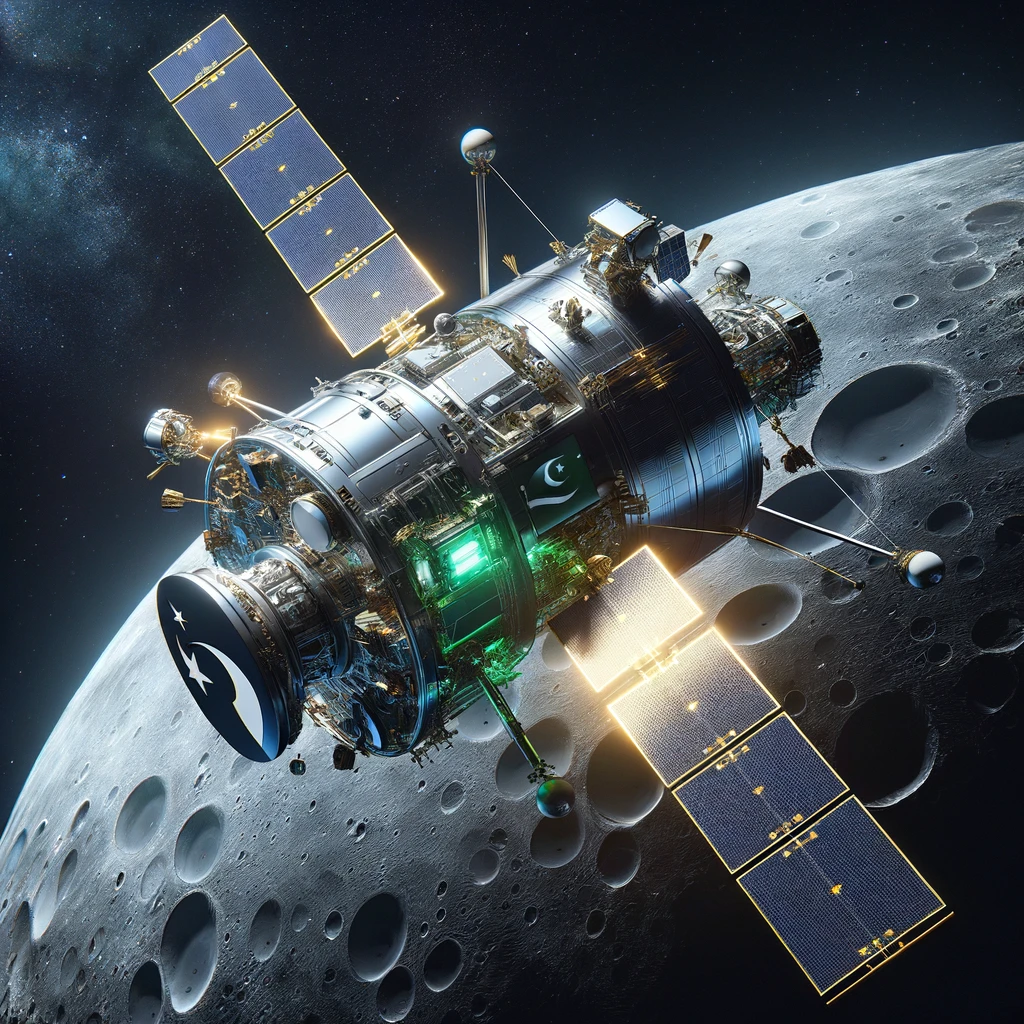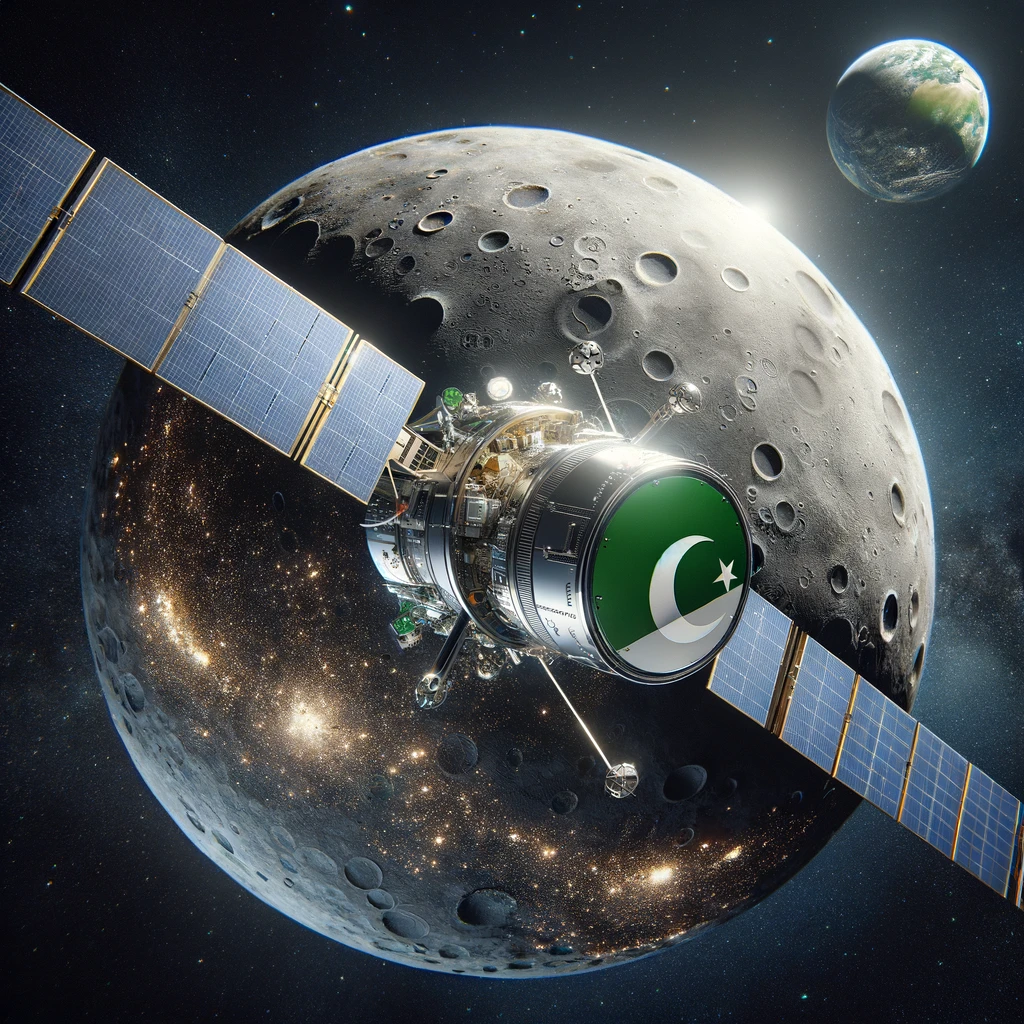Pakistan’s space program reached a significant milestone with the launch of its first lunar satellite, ICUBE-Q, aboard a Chinese rocket. This venture not only places Pakistan on the map of international space exploration but also underlines a deepening partnership with China in aerospace technology. Here’s a detailed look into this groundbreaking mission.
The launch of the ICUBE-Q satellite marks a pivotal moment in Pakistan’s space exploration history. Developed by Pakistan’s Institute of Space Technology (IST) in collaboration with China’s Shanghai Jiaotong University and SUPARCO, Pakistan’s national space agency, the satellite was sent into space aboard the Chang’e-6 lunar probe from China’s Wenchang Space Launch Center.

Objectives of the ICUBE-Q Mission
The primary aim of the ICUBE-Q mission is to conduct scientific experiments on the Moon’s surface, providing data that could be crucial for future lunar exploration missions. Equipped with advanced optical cameras, ICUBE-Q is tasked with capturing high-resolution images and conducting geological surveys of the Moon, focusing on areas previously unexplored by other lunar missions.
Significance of the Mission
The launch of the ICUBE-Q satellite is a testament to Pakistan’s growing capabilities in space technology and its ambition to join the ranks of global players in space exploration. The data collected from this mission will not only enrich our understanding of the Moon but also bolster international collaborations in space research and development.
Technological Advances
ICUBE-Q represents a significant technological leap for Pakistan, showcasing local expertise in satellite technology and systems engineering. The mission leverages cutting-edge technology to navigate and transmit data from the lunar surface, a feat that accentuates the capabilities of Pakistan’s scientific community.
Strategic Partnerships
The collaboration with China through this mission is a key aspect of Pakistan’s strategy to enhance its technological and scientific landscape. China’s support has been instrumental in providing the necessary resources and expertise needed for the successful deployment of ICUBE-Q, reinforcing a mutual commitment to advancing aerospace technology.
Mission Launch and Trajectory
The successful launch of ICUBE-Q was executed with precision, utilizing China’s powerful Long March-5 Y8 rocket. This collaboration highlights the strategic importance of the Chang’e-6 mission, which aims to collect samples from the far side of the Moon—a first in lunar exploration.
Challenges and Achievements
Navigating the complexities of lunar exploration, the ICUBE-Q mission faced numerous challenges, from ensuring the robustness of the satellite against harsh lunar conditions to perfecting its trajectory towards a precise lunar orbit. The successful handling of these challenges marks a significant achievement for Pakistan’s space capabilities.

Future Prospects
Looking ahead, the ICUBE-Q mission sets the stage for more ambitious projects within Pakistan’s space agenda. The experience and data gained from this mission are expected to drive future initiatives, possibly leading to more advanced lunar missions and even manned spaceflights.
Enhancing Global Collaboration
Pakistan’s participation in the International Lunar Research Station project, led by China, opens doors to enhanced cooperation with other global entities. This collaborative model not only boosts Pakistan’s capabilities but also contributes to a shared pool of knowledge and resources in the international space community.
Read More about Terrorism Vs Pakistan
Conclusion
The launch of the Pakistan satellite, ICUBE-Q, aboard a Chinese lunar mission represents a monumental step forward for Pakistan in the arena of space exploration. This mission not only demonstrates Pakistan’s advanced capabilities in space technology but also enhances its position within the global scientific community. With this successful launch, Pakistan looks forward to a future where it plays an active role in the next frontier of space exploration.
The ICUBE-Q mission is a beacon of Pakistan’s strategic advancements and scientific aspirations, promising exciting possibilities for the nation’s role in future international space endeavors.